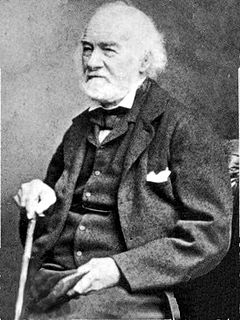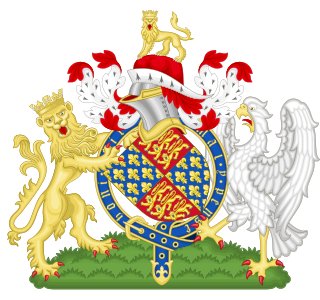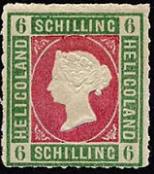| Look up forgery in Wiktionary, the free dictionary. |
Forgery is the process of making false documents.
Forgery may also refer to the following conceptually similar topics:
| Look up forgery in Wiktionary, the free dictionary. |
Forgery is the process of making false documents.
Forgery may also refer to the following conceptually similar topics:
| This disambiguation page lists articles associated with the title Forgery. If an internal link led you here, you may wish to change the link to point directly to the intended article. |

Forgery is a white-collar crime that generally refers to the false making or material alteration of a legal instrument with the specific intent to defraud anyone. Tampering with a certain legal instrument may be forbidden by law in some jurisdictions but such an offense is not related to forgery unless the tampered legal instrument was actually used in the course of the crime to defraud another person or entity. Copies, studio replicas, and reproductions are not considered forgeries, though they may later become forgeries through knowing and willful misrepresentations.

John Payne Collier, was an English Shakespearean critic and forger.

William Henry Ireland (1775–1835) was an English forger of would-be Shakespearean documents and plays. He is less well known as a poet, writer of gothic novels and histories. Although he was apparently christened William-Henry, he was known as Samuel through much of his life, and many sources list his name as Samuel William Henry Ireland.

Art forgery is the creating and selling of works of art which are falsely credited to other, usually more famous artists. Art forgery can be extremely lucrative, but modern dating and analysis techniques have made the identification of forged artwork much simpler.

Giovanni (Jean) de Sperati was an Italian stamp forger. Robson Lowe considered him an artist and even professional stamp authenticators of his time attested to the genuineness of his work. Sperati created what he called a Livre d'Or which he boasted of in his autobiography and which contained 239 favourable opinions as to the genuineness of his forgeries from numerous experts, including Dr. Edward Diena and the Royal Philatelic Society London.

Earl of Stirling was a title in the Peerage of Scotland. It was created on 14 June 1633 for William Alexander, 1st Viscount of Stirling. He had already been created a Baronet, of Menstrie in the County of Clackmannan, in the Baronetage of Nova Scotia on 12 July 1625, then Lord Alexander of Tullibody and Viscount of Stirling on 4 September 1630, then Earl of Dovan in 1639. He was made Viscount of Canada at the same time that he was granted the earldom of Stirling. The other peerage titles were also in the Peerage of Scotland. The titles became dormant upon the death of the fifth Earl in 1739.

The Treason Act 1351 is an Act of the Parliament of England which codified and curtailed the common law offence of treason. No new offences were created by the statute. It is one of the earliest English statutes still in force, although it has been very significantly amended. It was extended to Ireland in 1495 and to Scotland in 1708. The Act was passed at Westminster in the Hilary term of 1351, in the 25th year of the reign of Edward III and was entitled "A Declaration which Offences shall be adjudged Treason". It was passed to clarify precisely what was treason, as the definition under common law had been expanded rapidly by the courts until its scope was controversially wide. The Act was last used to prosecute William Joyce in 1945 for collaborating with Germany in World War II.

During the period when Heligoland was a British possession, about 20 postage stamps were issued between 1867 and 1890. There were up to eight printings of a single denomination and also a large volume of reprints which are known as the Berlin, Leipzig and Hamburg Reprints, respectively. The Berlin reprints are sometimes better quality than the originals. The reprints were done between 1875 and 1895. Consequently, many "old" collections contain reprints rather than originals. Some believe there were seven million reprints as compared to the known 1½ million originals, of which perhaps half were sold through the post office and the remainder sold to dealers when withdrawn from use. A few printings were never postally sold but nevertheless found their way into the hands of dealers. The stamps were printed by the Prussian State Printing Office in Berlin. They were denominated in the Hamburg Schilling until 1875, when both German Reich and British values appeared on each stamp issue. All are embossed with a silhouette of Queen Victoria excepting the four highest values which represent Heligoland escutcheons.

In general, philatelic fakes and forgeries are labels that look like postage stamps but are not. Most have been produced to deceive or defraud. Learning to identify these can be a challenging branch of philately.
Literary forgery is writing, such as a manuscript or a literary work, which is either deliberately misattributed to a historical or invented author, or is a purported memoir or other presumably nonfictional writing deceptively presented as true when, in fact, it presents untrue or imaginary information.
Vortigern and Rowena, or Vortigern, an Historical Play is a play that was touted as a newly discovered work by William Shakespeare when it first appeared in 1796. It was eventually revealed to be a Shakespeare hoax, the product of prominent forger William Henry Ireland. Its first performance was on 2 April 1796, when it was ridiculed by the audience. Its titular protagonists, Vortigern and Rowena, are figures from Britain's traditional history.

Bawku Central is one of the constituencies represented in the Parliament of Ghana. It elects one Member of Parliament (MP) by the first past the post system of election. Bawku Central is located in the Bawku Municipal district of the Upper East Region of Ghana.

The Ireland Shakespeare forgeries were a cause célèbre in 1790s London, when author and engraver Samuel Ireland announced the discovery of a treasure-trove of Shakespearean manuscripts by his son William Henry Ireland. Among them were the manuscripts of four plays, two of them previously unknown.

The Protocols of the Elders of Zion or The Protocols of the Meetings of the Learned Elders of Zion is a fabricated antisemitic text purporting to describe a Jewish plan for global domination. The hoax, which was shown to be plagiarized from several earlier sources, some not antisemitic in nature, was first published in Russia in 1903, translated into multiple languages, and disseminated internationally in the early part of the 20th century. According to the claims made by some of its publishers, the Protocols are the minutes of a late 19th-century meeting where Jewish leaders discussed their goal of global Jewish hegemony by subverting the morals of Gentiles, and by controlling the press and the world's economies.
Cliché is an adjective denoting overuse.
Existence may also refer to:
Cross-site request forgery, also known as one-click attack or session riding and abbreviated as CSRF or XSRF, is a type of malicious exploit of a website where unauthorized commands are transmitted from a user that the web application trusts. There are many ways in which a malicious website can transmit such commands; specially-crafted image tags, hidden forms, and JavaScript XMLHttpRequests, for example, can all work without the user's interaction or even knowledge. Unlike cross-site scripting (XSS), which exploits the trust a user has for a particular site, CSRF exploits the trust that a site has in a user's browser.

The Forgery Act 1870 is an Act of the Parliament of the United Kingdom. The whole Act, so far as unrepealed, was repealed by section 33(3) of, and Part I of Schedule 3 to, the Theft Act 1968. This Act was repealed for the Republic of Ireland by sections 1 and 2 of, and Part 4 of the Schedule to, the Statute Law Revision (Pre-1922) Act 2005.

The Forgery Act 1830 was an Act of the Parliament of the United Kingdom. It consolidated into one Act all legislation imposing the death penalty for forgery. Two years later the death penalty was abolished for most of these offences, and for the remaining offences in 1837.
The Interagency Active Measures Working Group was a group led by the United States Department of State and later by the United States Information Agency (USIA). The group was formed early during the Reagan administration, in 1981, as an effort to counter aggressive Soviet propaganda.